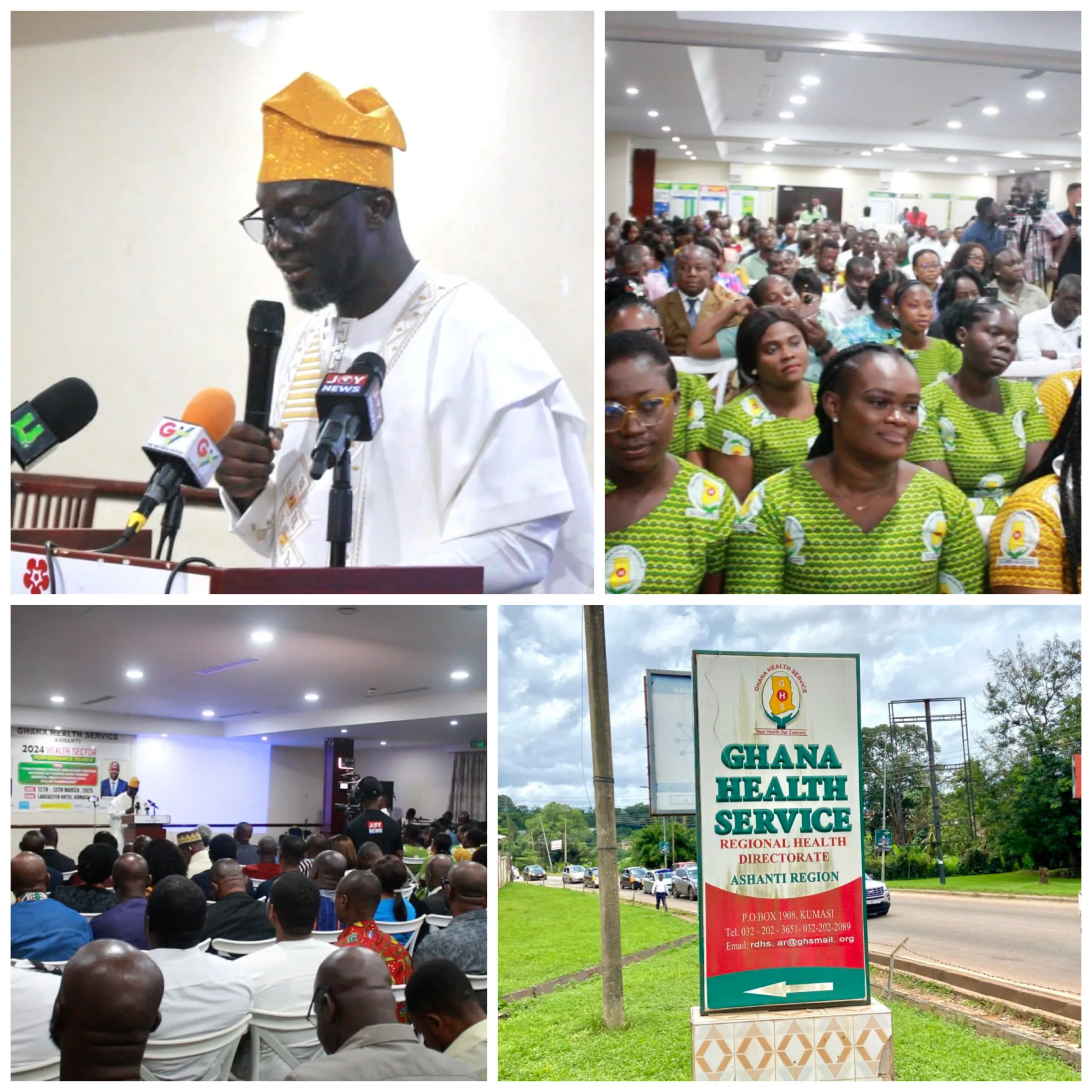The Ashanti Regional Health Directorate has begun its Integrated 2024 Annual Performance Review and First Quarter Health System Innovations Review Meeting at the Lancaster Hotel in Kumasi.
The meeting brings together key stakeholders in the health sector to assess the region’s healthcare performance, identify challenges, and develop strategies to enhance service delivery.

Welcoming participants, the Ashanti Regional Director of Health Services, Dr. Fred Adomako-Boateng, underscored the significance of the gathering, citing a famous quote from Chinua Achebe: “A man who calls his kinsmen to a feast does not do so to redeem them from starving… We come together because it is good for kinsmen to do so.”
He noted that reviewing performance was crucial in improving healthcare services. Quoting Socrates, he added, “An unexamined life is not worth living.”
Providing an overview of the region’s healthcare indicators, Dr. Adomako-Boateng highlighted both progress and setbacks. He noted that the implementation of internal and external audit recommendations had improved from 88.6% in 2022 to 95.7% in 2023 and stood at 94.5% in 2024, surpassing the target of 80%.

The family planning acceptor rate also showed a positive trend, increasing from 22.5% in 2020 to 32.6% in 2024, though still short of the 40% target.
However, some critical indicators fell below expectations. The proportion of deliveries attended by trained health workers declined from 57% in 2023 to 52.5% in 2024, missing the 65% target.
The doctor-to-population ratio also worsened, moving from 1:5,380 in 2023 to 1:5,614 in 2024, though it remains within the national benchmark of 1:7,500.
A major concern raised was maternal mortality, which remains alarmingly high. “Why should 889 women die in giving life?” Dr. Adomako-Boateng questioned, stressing the need for urgent interventions.

He acknowledged the support of UNICEF in addressing maternal health challenges but urged stakeholders to work harder to achieve the Sustainable Development Goal (SDG) target of reducing maternal mortality to 70 per 100,000 live births by 2030.
The theme for this year’s review, “Strengthening Primary Health Care (PHC) through Networks of Practice (NoP) towards Universal Health Coverage: The Role of Stakeholders,” highlights the importance of collaboration.
Dr. Adomako-Boateng emphasised that strengthening Community-Based Health Planning and Services (CHPS) zones, sub-district health centres, and district hospitals could help meet over 80% of healthcare needs if adequately resourced.

Addressing infrastructure challenges, he lamented the state of the Ashanti Regional Medical Stores, which was built in 1978 when the regional population was just 1.3 million. “The warehouse we have now can no longer serve the purpose for which it was created.
We must construct and expand the current physical infrastructure,” he stated, revealing that the Otumfuo Osei Tutu II Foundation was considering its expansion.
Dr. Adomako-Boateng acknowledged the contributions of past regional health directors, district medical officers, and development partners, including UNICEF, PATH, Jhpiego, Sysmex, and the National Malaria Elimination Program.
He concluded with a quote from Albert Einstein: “Not everything that counts can be counted, and not everything that can be counted counts,” urging participants to focus on efficiency and impactful results.
The meeting will include detailed discussions on district-level performance and strategies to improve healthcare delivery across the Ashanti Region.
WATCH: President Mahama Swears In COP Tetteh Yohuno As New IGP – See What You Missed.
Report By: Nana Yaw Owusu/Ashanti Region.



